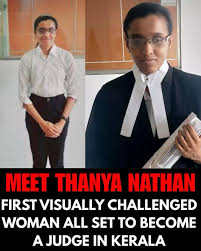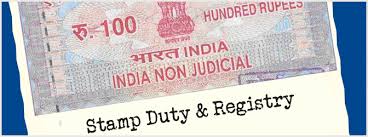@JUDGMENTTAG-ORDER
K. Chandru, J.@mdashHeard both sides. This Writ petition challenges the charge memo issued by the second respondent dated 03.02.2009 framed under Rule 17(b) of the Tamil Nadu Civil Services (Discipline & Appeal) Rules. The charge against the petitioner was that he was caught red-handed for having received bribes for passing a favourable order under the Minimum Wages Act.
2. The grievance of the petitioner is that the Charge Memo is illegal and is liable to be quashed on the ground that the charges are baseless and no application of mind. There was a delay of 5-1/2 years after his arrest and that as a minimum wages authority, he was protected under the Judges Protection Act.
3. This Court is unable to countenance any one of the contentions raised by the petitioner.
4. The Supreme Court in its decision in
9. The High Court was not justified in quashing the show cause notice. When a show cause notice is issued to a government servant under a statutory provision calling upon him to show cause, ordinarily the government servant must place his case before the authority concerned by showing cause and the courts should be reluctant to interfere with the notice at that stage unless the notice is shown to have been issued palpably without any authority of law. ''The purpose of issuing show cause notice is to afford opportunity of hearing to the government servant and once cause is shown it is open to the Government to consider the matter in the light of the facts and submissions placed by the government servant and only thereafter a final decision in the matter could be taken. Interference by the court before that stage would be premature, the High Court in our opinion ought not have interfered with the show cause notice.
5. The Supreme Court vide judgment in
5. This Court in a large number of cases has deprecated the practice of the High Courts entertaining writ petitions questioning legality of the show-cause notices stalling enquiries as proposed and retarding investigative process to find actual facts with the participation and in the presence of the parties. Unless the High Court is satisfied that the show-cause notice was totally non est in the eye of the law for absolute want of jurisdiction of the authority to even investigate into facts, writ petitions should not be entertained for the mere asking and as a matter of routine, and the writ petitioner should invariably be directed to respond to the show-cause notice and take all stands highlighted in the writ petition. Whether the show-cause notice was founded on any legal premises, is a jurisdictional issue which can even be urged by the recipient of the notice and such issues also can be adjudicated by the authority issuing the very notice initially, before the aggrieved could approach the court. Further, when the court passes an interim order it should be careful to see that the statutory functionaries specially and specifically constituted for the purpose are not denuded of powers and authority to initially decide the matter and ensure that ultimate relief which may or may not be finally granted in the writ petition is not accorded to the writ petitioner even at the threshold by the interim protection granted.
6. Further, the Supreme Court in the judgment relating to Union of India v. Kunisetty Satyanarayana reported in (2006) 12 SCC 28 in paras 13 to 16 held as follows:
13. It is well settled by a series of decisions of this Court that ordinarily no writ lies against a charge-sheet or show-cause notice vide
14. The reason why ordinarily a writ petition should not be entertained against a mere show-cause notice or charge-sheet is that at that stage the writ petition may be held to be premature. A mere charge-sheet or show-cause notice does not give rise to any cause of action, because it does not amount to an adverse order which affects the rights of any party unless the same has been issued by a person having no jurisdiction to do so. It is quite possible that after considering the reply to the show-cause notice or after holding an enquiry the authority concerned may drop the proceedings and/or hold that the charges are not established. It is well settled that a writ petition lies when some right of any party is infringed. A mere show-cause notice or charge-sheet does not infringe the right of anyone. It is only when a final order imposing some punishment or otherwise adversely affecting a party is passed, that the said party can be said to have any grievance.
15. Writ jurisdiction is discretionary jurisdiction and hence such discretion under Article 226 should not ordinarily be exercised by quashing a show-cause notice or charge-sheet.
16. No doubt, in some very rare and exceptional cases the High Court can quash a charge-sheet or show-cause notice if it is found to be wholly without jurisdiction or for some other reason if it is wholly illegal. However, ordinarily the High Court should not interfere in such a matter.
7. In the decision in
7. On a perusal of charges, we find that the charges are very serious. We are, therefore, not inclined to close the matter only on the ground that about 16 years have elapsed since the date of commencement of disciplinary proceedings, more particularly when the appellant alone cannot be held responsible for this delay....
8. Further, in Secretary to Government, Prohibition & Excise Department v. L. Srinivasan reported in
3. ...We are informed that charge-sheet was laid for prosecution for the offences of embezzlement and fabrication of false records etc. and that the offences and the trial of the case is pending. The Tribunal had set aside the departmental enquiry and quashed the charge on the ground of delay in initiation of disciplinary proceedings. In the nature of the charges, it would take a long time to detect embezzlement and fabrication of false records which should be done in secrecy. It is not necessary to go into the merits and record any finding on the charge levelled against the charged officer since any finding recorded by this Court would gravely prejudice the case of the parties at the enquiry and also at the trial. Therefore, we desist from expressing any opinion on merit or recording any of the contentions raised by the counsel on either side. Suffice it to state that the Administrative Tribunal has committed grossest error in its exercise of the judicial review. The member of the Administrative Tribunal appears to have no knowledge of the jurisprudence of the service law and exercised power as if he is an appellate forum dehors the limitation of judicial review. This is one such instance where a member had exceeded his power of judicial review in quashing the suspension order and charges even at the threshold. We are coming across such orders frequently putting heavy pressure on this Court to examine each case in detail. It is high time that it is remedied.
9. Very recently, the Supreme Court in Govt. of A.P. v. V. Appala Swamy reported in (2007) 14 SCC 49 held the parameters of interfering with a charge sheet on the ground of delay in paragraphs 12, 14 and 15 which read as follows:
12. So far as the question of delay in concluding the departmental proceedings as against a delinquent officer is concerned, in our opinion, no hard-and-fast rule can be laid down therefor. Each case must be determined on its own facts. The principles upon which a proceeding can be directed to be quashed on the ground of delay are:
(1) where by reason of the delay, the employer condoned the lapses on the part of the employee;
(2) where the delay caused prejudice to the employee.
Such a case of prejudice, however, is to be made out by the employee before the inquiry officer.
....
14. Learned Counsel appearing on behalf of the respondent, however, placed strong reliance on a decision of this Court in
15. Bijlani, therefore, is not an authority and, in fact, as would appear from the decision in P.D. Agrawal4 for the proposition that only on the ground of delay the entire proceedings can be quashed without considering the other relevant factors therefor.
10. Further a division bench of this Court has held in 2008 (3) MLJ 877 (T.K.K. Tharmar v. Registrar, CAT, Chennai and Ors.) that even an action of a quasi judicial authority can be subjected to disciplinary action on his conduct in passing orders for extraneous reasons.
11. In the light of the above decisions of the Supreme Court, the Writ Petition is clearly misconceived and there are no grounds warranting interference of the charge memo at this stage. Hence this writ petition shall stand dismissed. No costs. Connected Miscellaneous petitions are closed.
12. However, if the time granted by the authorities in submitting the explanation had already expired, the petitioner is given two more weeks from the date of receipt of a copy of this order to submit his explanation and participate in the enquiry.

